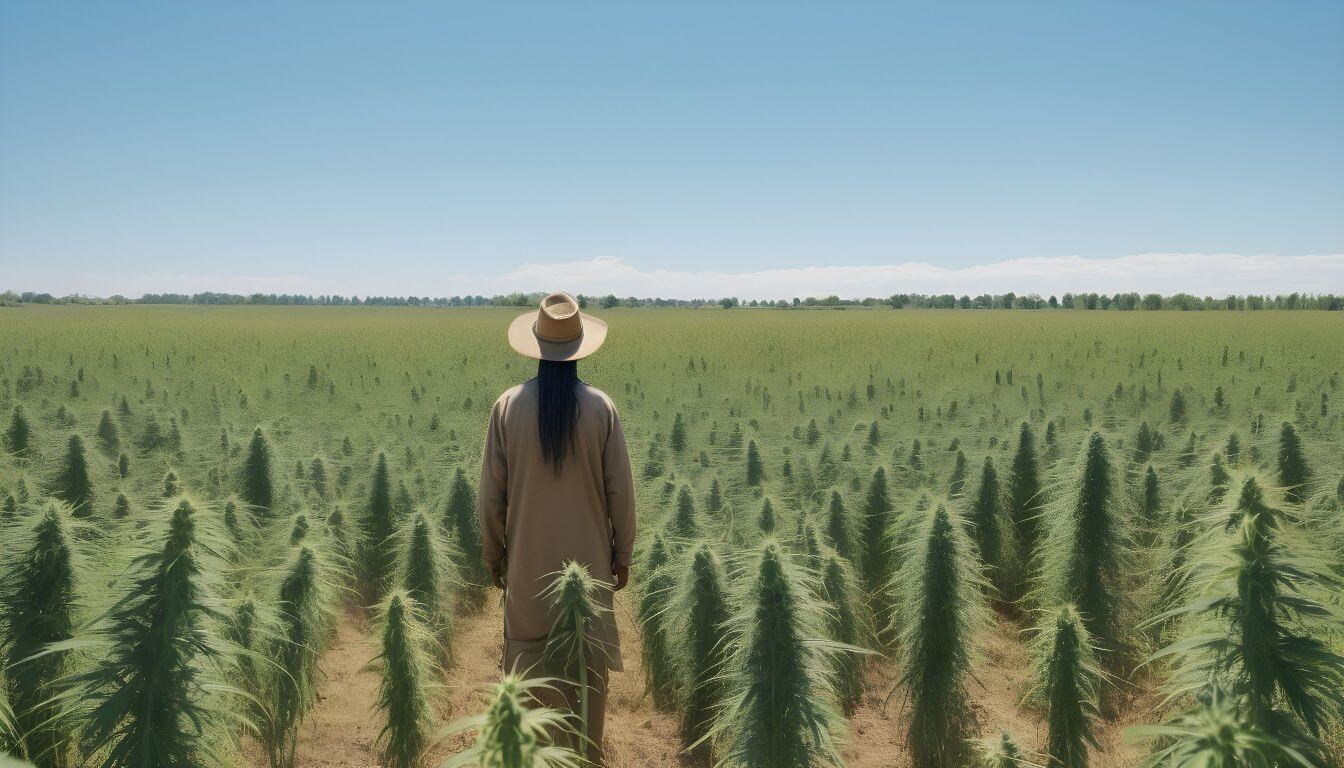Oregon State University’s Global Hemp Innovation Center (GHIC) recently announced a $10 million grant awarded by the U.S. Department of Agriculture. The grant aims to support and develop the hemp-based economy within 13 Native American tribes. The center will collaborate with these tribes to foster sustainable supply chains for hemp products based on requirements identified by an intertribal business consortium. This project will link regional production, processing, and manufacturing, potentially creating new opportunities for tribal nations and rural communities.
Although the U.S.’s overall hemp production significantly dropped by 2020, industrial hemp usage continues to garner interest and hold potential. It is crucial that investment decisions are backed by robust research and strategic planning, ensuring maximum benefits for tribal nations and their surrounding rural areas.
Objectives of the Project
The project’s primary goals include providing pertinent information to tribal leaders, policymakers, regulatory bodies, and technology providers. This guidance will help them assess the viability of investing in a hemp-based bioeconomy specific to reservations and across the region. The project will tackle diverse components spanning the entire supply chain, from crop fields to manufacturing facilities, focusing on improving efficiency and effectively managing industrial hemp.
The 13 participating tribes come from various states, including Oregon, Washington, Idaho, Nevada, Montana, and California. Numerous universities and organizations are also partnering with Oregon State University in this venture. The collaboration also incorporates the USDA Agricultural Research Service and multiple businesses involved in hemp production.
Implications of Developing a Hemp-Based Economy
A thriving hemp-based economy could present a range of benefits for Native American tribes and their local communities. Some notable implications include economic growth, diversification of agricultural practices, sustainable development, and job creation within reservations.
Developing a diversified and self-reliant economy is vital for the long-term progress of tribal communities. Hemp-related industries hold the potential to foster innovative revenue streams that can help revitalize rural areas – both financially and environmentally.
Economic Growth and Job Creation
Investments in hemp cultivation, processing, and manufacturing facilities could potentially boost economic growth in tribal communities through job creation and workforce development. Furthermore, building a thriving hemp-based industry may contribute positively to these regions’ socioeconomic well-being and provide greater financial stability for residents.
Sustainable Development and Environmental Benefits
The industrial utilization of hemp as a renewable resource aligns with principles of sustainability and environmental consciousness. Hemp crops can be grown using minimal water and synthetic inputs while encouraging biodiversity and contributing to better soil health. Moreover, hemp fibers are biodegradable, demonstrating significant potential in replacing petroleum-based products with more ecologically sound alternatives. A robust hemp-based economy could have wide-ranging positive effects on environmental conservation strategies for tribal lands.
Navigating Challenges Within the Hemp Industry
While the potential benefits of investing in a hemp-based economy have been highlighted, it’s crucial to consider the challenges that may arise for stakeholders involved in this industry. Key concerns include regulatory uncertainties, competition from other sectors, and infrastructure limitations that can hinder the successful implementation of hemp production, processing, and marketing initiatives.
Addressing Regulatory Uncertainties
As the legal landscape surrounding the hemp industry changes rapidly, navigating regulations becomes challenging for businesses and investors alike. The project aims to address these regulatory uncertainties by providing relevant information to policymakers and tribal leaders, facilitating informed decision-making, and identifying potential risks or opportunities. A well-functioning regulatory framework will be crucial in charting a clear path towards developing a successful hemp-based economy.
Overcoming Infrastructure Limitations
Robust infrastructure is essential to establish a thriving hemp industry, particularly regarding crop cultivation, processing, manufacturing, and distribution. Ensuring access to adequate resources, research facilities, technology, and workforce development programs is key to overcoming these limitations.
The $10 million grant awarded to the Global Hemp Innovation Center presents an unprecedented opportunity for Native American tribes to strategically develop and capitalize on a sustainable hemp-based economy. The collaboration between Oregon State University, the 13 partner tribes, and various other organizations could be instrumental in empowering these communities for years to come.





